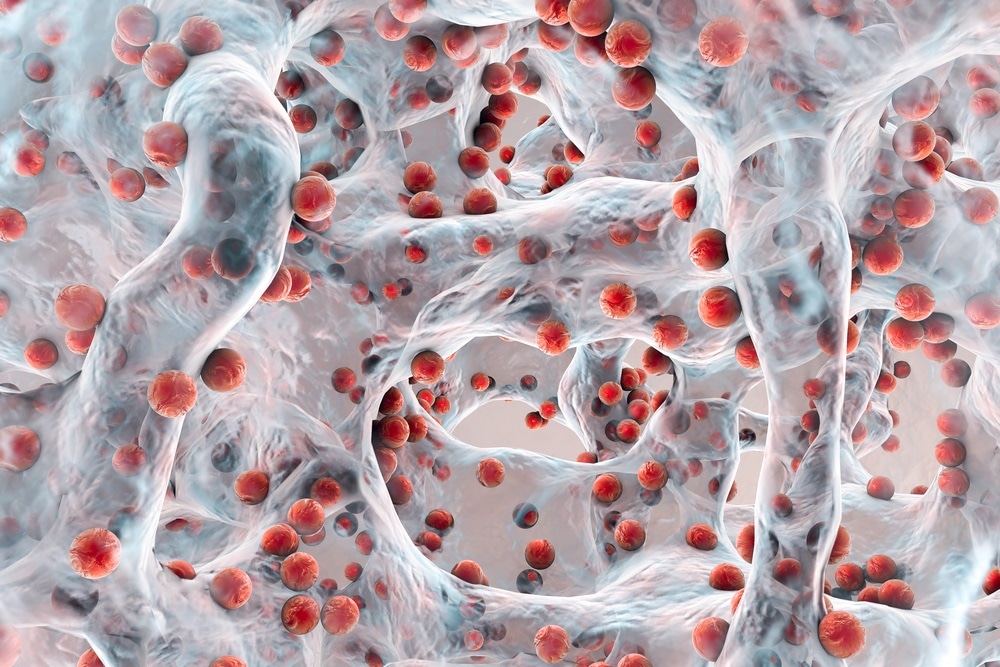Scientists from McMaster University in Hamilton, Ontario, Canada, have discovered a strong antimicrobial that is effective against some of the strongest infectious diseases and could enable the development of new therapeutic drugs that fight drug-resistant infections.
 Image Credit: Kateryna Kon / Shutterstock.com
Image Credit: Kateryna Kon / Shutterstock.com
The potent antimicrobial is particularly effective against Staphylococcus aureus diseases, commonly called staph infections. These infections stem from bacteria that live harmlessly on many people’s skin and are often found in the nose, armpits, groin, or on the buttocks.
If the bacteria get into the skin through a bite or a cut, close skin contact, through shared use of towels or toothbrushes, or less commonly through droplets from coughs and sneezes, it can cause some serious complications such as blood poisoning or toxic shock syndrome. However, the infection can go away without the need for antibiotic treatments and usually presents itself as a skin infection.
There is a growing global danger of antimicrobial resistance, and staph infections are believed to be the main cause of this spreading resistance. Methicillin-resistant (MRSA) strains are the most commonly known strains that are developing resistance to all antibiotics currently in use. This is causing particular concern in hospitals, nursing homes, and other healthcare settings, as MRSA can be spread through surgical sites and medical devices inserted into the body.
The study, published in Nature Chemical Biology on 25 November 2019, shows how the McMaster University research team has potentially begun to combat this trend in antimicrobial resistance. By screening thousands of small molecules, researchers discovered MAC-545496, a potent new antimicrobial that is active against MRSA.
MAC-545496 does not kill staph infections or stop its growth, and so the chances of the infection becoming resistant to the antimicrobial are significantly smaller than with conventional antibiotics.
With the Centers for Disease Control and Prevention estimating that around 5 percent of patients in US hospitals carrying MRSA on their skin or in their nose, this discovery’s importance is clear.
This antimicrobial has a very exciting mode of action, kind of like hitting many birds with one stone.”
Senior author Eric Brown, McMaster University
Brown added that it “provides a promising starting point.”
MAC-545496 inhibits MRSA’s ability to bring about infections by weakening its tolerance to the immune system and blocking its ability to resist a number of front-line antibiotics. In particular, MAC-545496 is able to separate MRSA from a key protein, GraR, which facilitates the infection’s responses to external counter attacks and its ability to resist antibiotics. As such, the immune system is better able to clear the infection itself.
“We screened about 45,000 different compounds and found this potent bioactive,” Omar El-Halfawy said, the first author on the study and a postdoctoral fellow of biochemistry and biomedical sciences at McMaster.
“It’s the needle in the haystack. But, although it will be a long road between this discovery and clinical use, we feel we’re expanding our arsenal for combatting drug-resistant staph infections.”
Source:
Potent antimicrobial found that shows promise in fighting staph infections. Eurekalert. Available from: https://www.eurekalert.org/emb_releases/2019-11/mu-paf112219.php